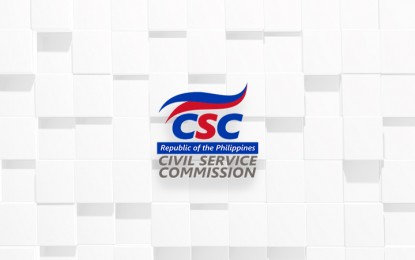
MANILA – The Civil Service Commission (CSC) on Friday urged the 1.9 million government employees across the country to refrain from participating in electioneering and partisan activities, as the 2023 Barangay and Sangguniang Kabataan Election (BSKE) candidates campaign from Oct. 19 to 28.
Electioneering and partisan political activity refer to acts designed to promote the election or defeat of a particular candidate or party to public office.
In a statement, CSC Chairperson Karlo Nograles said the 1987 Constitution mandates that no officer or employee in the civil service shall engage, directly or indirectly, in these acts, while the same prohibition can be found in the CSC - Commission on Elections (Comelec) Joint Circular No. 1, series of 2016 promulgated on March 29, 2016.
"The Commission acknowledges civil servants’ shared desire to contribute to improved public service delivery through electoral participation. However, we must remain mindful not to engage in electioneering or partisan activities during this period. This precautionary measure underscores our commitment to maintaining the integrity and neutrality of the public service," he said.
The prohibition covers members of the civil service, whether permanent, temporary, contractual, or casual, who are employed in all branches, subdivisions, instrumentalities and agencies of the Philippine government; career officers holding political offices in an acting or officer-in-charge (OIC) capacity; and uniformed and active members of the Armed Forces of the Philippines and the Philippine National Police.
Employees on leave of absence are also covered.
Civil servants are not allowed to engage in forming organizations, associations, clubs, committees, or other groups of persons for the purpose of soliciting votes and/or undertaking any campaign for or against a candidate/party; and holding political caucuses, conferences, meetings, rallies, parades, or other similar assemblies for the purpose of soliciting votes and/or undertaking any campaign for or against a candidate/party.
They are also prohibited from making speeches, announcements, commentaries or holding interviews for or against the election of any candidate/party for public office; publishing, displaying or distributing campaign literature or materials designed to support or oppose the election of any candidate/party; or directly or indirectly soliciting votes, pledges or support for or against a candidate/party.
The joint circular also prohibits government employees from being a delegate to any political convention, or a member of any political committee or directorate, or an officer of any political club or other similar political organizations; receiving any contributions for political purposes, either directly or indirectly; and becoming publicly identified with the success or failure of any candidate/s or party/parties; and wearing of T-shirts or pins, caps or any other similar election paraphernalia bearing the names of the candidates or political party except as authorized by the Commission on Elections.
Other prohibited acts include being a watcher for a political party or candidate during the election; consistent presence in political rallies, caucuses of and continuous companionship with certain political candidates and/or political parties in political activities, causing the employee to be closely identified with such candidate and/or political party; giving personal, financial, or other monetary contribution, supplies, equipment and materials for the benefit of a candidate and/or political party; and using government resources such as personnel, including job orders or contract of service hires, time and properties for political purposes.
Civil servants are allowed to cast their votes, express their views on current political problems or issues, mention the names of candidates or parties they support and publicly express their opinions or engage in discussions of probable issues in a forthcoming election, or on attributes of or criticisms against probable candidates to be nominated on a forthcoming political party convention.
Regarding social media use, government workers may repost, share, like, comment or follow a candidate’s or party’s account as long as they do not explicitly solicit support for or against a candidate or party during the campaign period.
Government employees who will be found guilty of engaging directly or indirectly in partisan political activities will be meted with a penalty of one month and one day to six months suspension for the first offense, and dismissal from the service for the second offense, according to the 2017 Rules on Administrative Cases in the Civil Service. (PNA)
